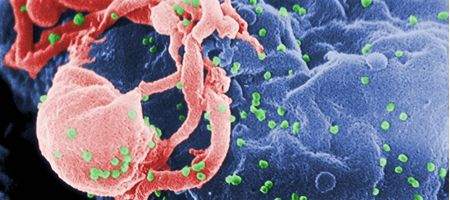UCLA researchers say they’ve shown that genetically engineered stem cells can attack HIV-infected cells in a living organism.

The ‘warrior’ cells have been shown to seek out and destroy HIV in mice.
“We believe that this study lays the groundwork for the potential use of this type of an approach in combating HIV infection in infected individuals, in hopes of eradicating the virus from the body,” says UCLA assistant professor of medicine Scott Kitchen.
The scientists had already identified the molecule known as the T cell receptor – which guides the T cell in recognizing and killing HIV-infected cells – cloned it and used it to genetically engineer human blood stem cells.
When these cells were placed in human thymus tissue that had been implanted in mice, they blossomed into a large population that could specifically target cells containing HIV proteins.
Now, the researchers have engineered human blood stem cells in much the same way and found that they can form mature T cells that can attack HIV in tissues where the virus resides and replicates.
In a series of tests on the mice’s peripheral blood, plasma and organs, they found that the number of CD4 ‘helper’ T cells — which die off as a result of HIV infection — increased, while levels of HIV in the blood decreased.
This shows that the engineered cells were able to develop and migrate to the organs to fight infection there.
“We believe that this is the first step in developing a more aggressive approach in correcting the defects in the human T cell responses that allow HIV to persist in infected people,” says Kitchen.
The researchers will now begin making T cell receptors that target different parts of HIV and that could be used in more genetically matched individuals, he says.






